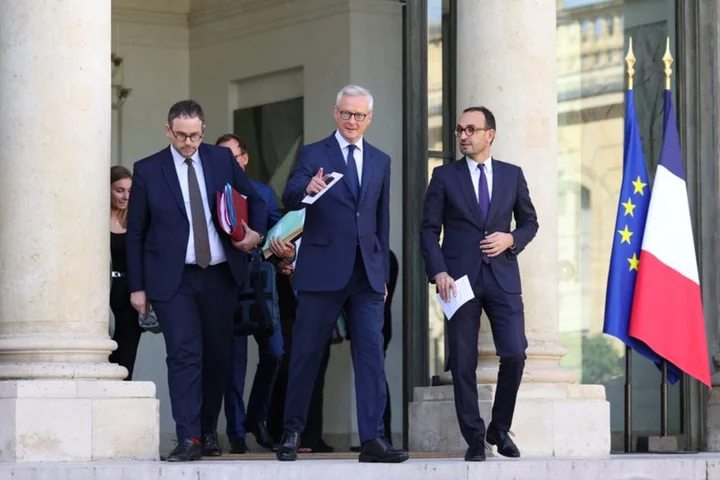By Michael S. Derby
NEW YORK Federal Reserve Bank of Cleveland President Loretta Mester said on Friday her outlook for central bank interest rate policy still leans toward another increase, while noting amid current economic uncertainties now is a time where policymakers need to be “nimble.”
“Regardless of the decision made at our next meeting, if the economy evolves as anticipated, in my view, we are likely near or at a holding point on the funds rate as we accumulate more information on economic and financial developments and assess the effects of the tightening in financial conditions that has already occurred,” Mester said in the text of a speech for delivery before a gathering of the Shadow Open Market Committee, a group often critical of Fed actions.
Mester noted Fed forecasts released at the September meeting eyed another increase in what is currently a federal funds target rate range of between 5.25% and 5.5% by the end of the year, and then to hold rates steady at high levels for an extended period. “This is consistent with my own reading of economic conditions, the outlook, and the risks to the outlook,” she said.
Mester, who does not have a vote on the Federal Open Market Committee this year, also noted that the outlook for policy can change. “Whether the fed funds rate needs to go higher than its current level and for how long policy needs to remain restrictive will depend importantly on how the economy evolves relative to the outlook and how the risks are changing,” she said.
The FOMC next meets on Oct. 31-Nov. 1 and is broadly expected to keep rates steady.
In her remarks, Mester said inflation pressures are coming down but remain too high. She said labor markets are also rebalancing toward more sustainable levels while wage pressures appear to be moderating. But she also said inflationary pressures could show an uneven process of moderation and added it’s important that there is no complacency about getting price pressures back to the 2% target.
Mester also said that if the recent surge in bond yields is sustained it should help moderate demand, which aligns with Fed goals.
(Reporting by Michael S. Derby; Editing by Andrea Ricci)









